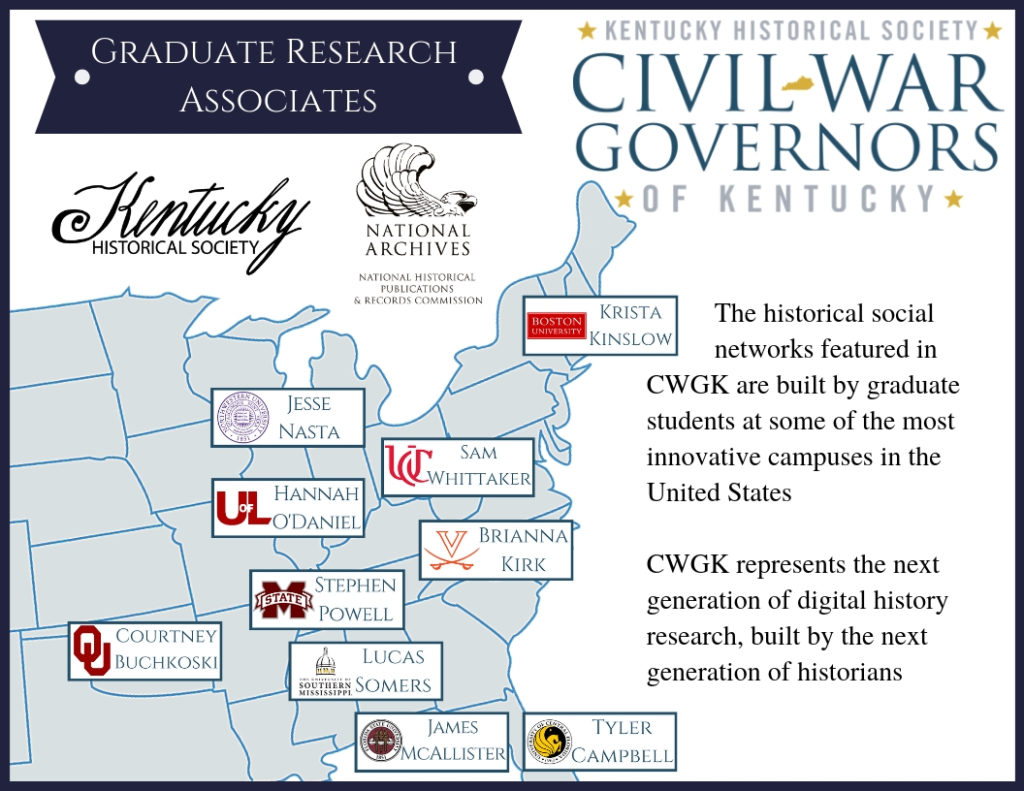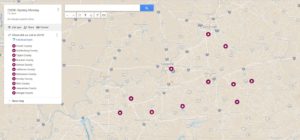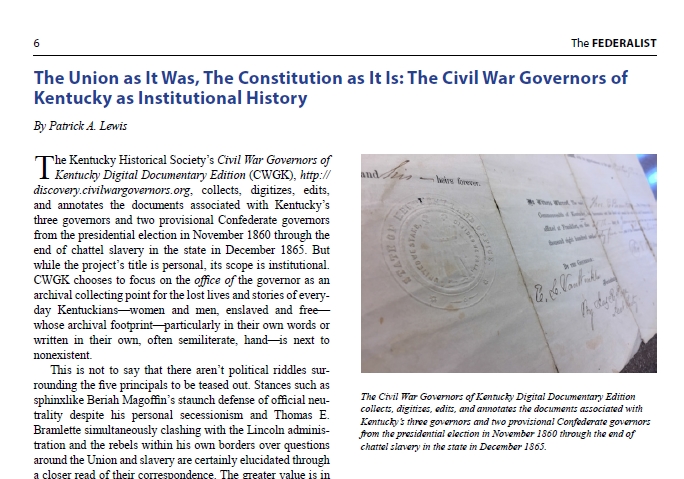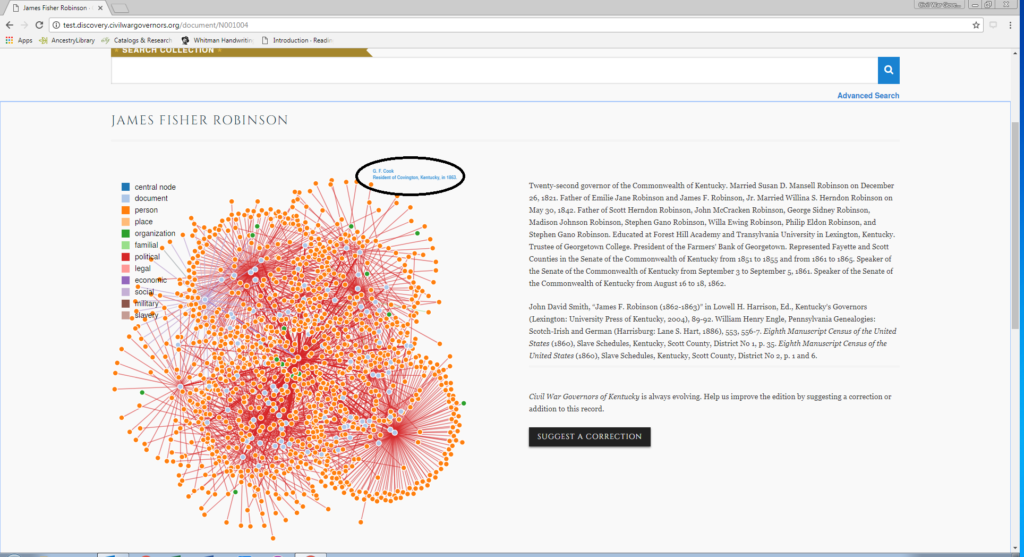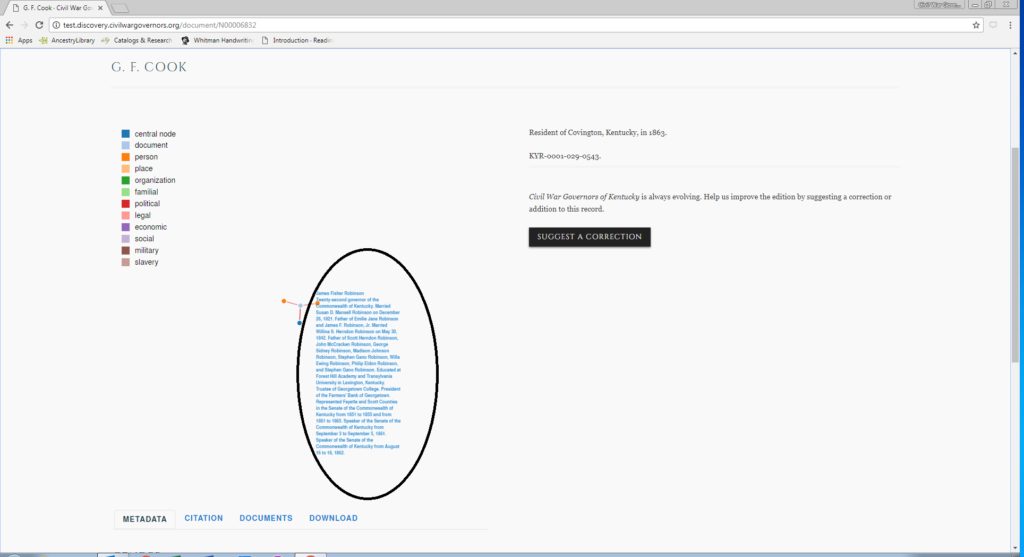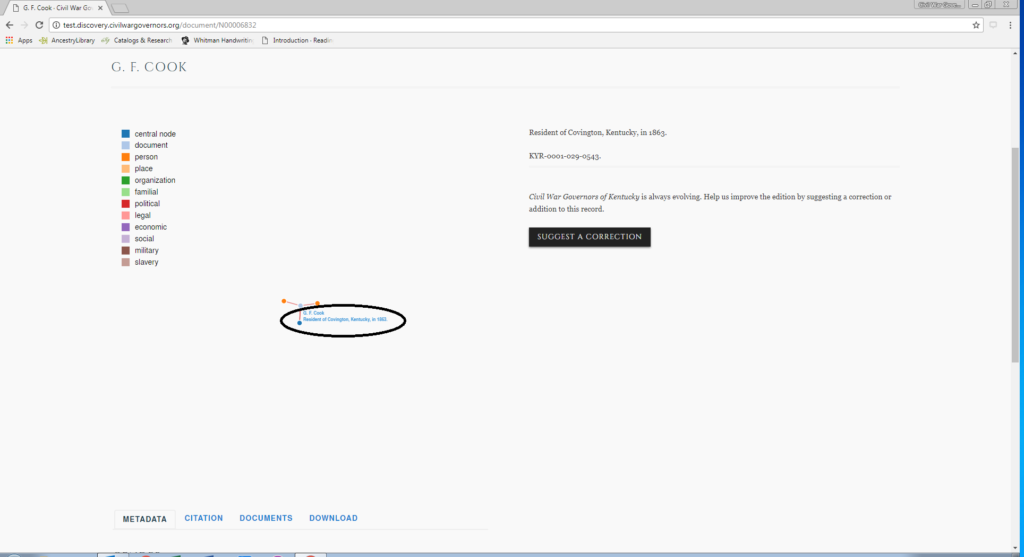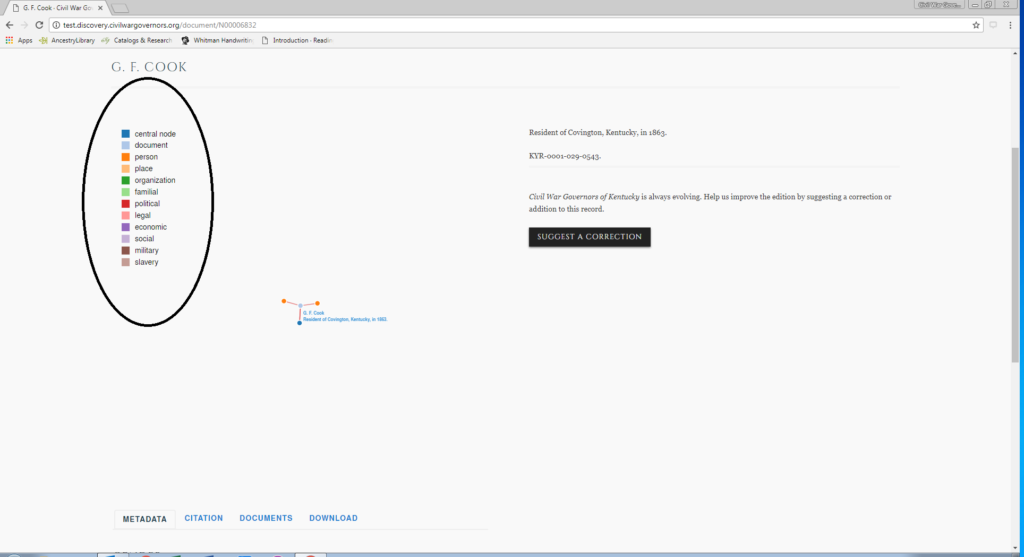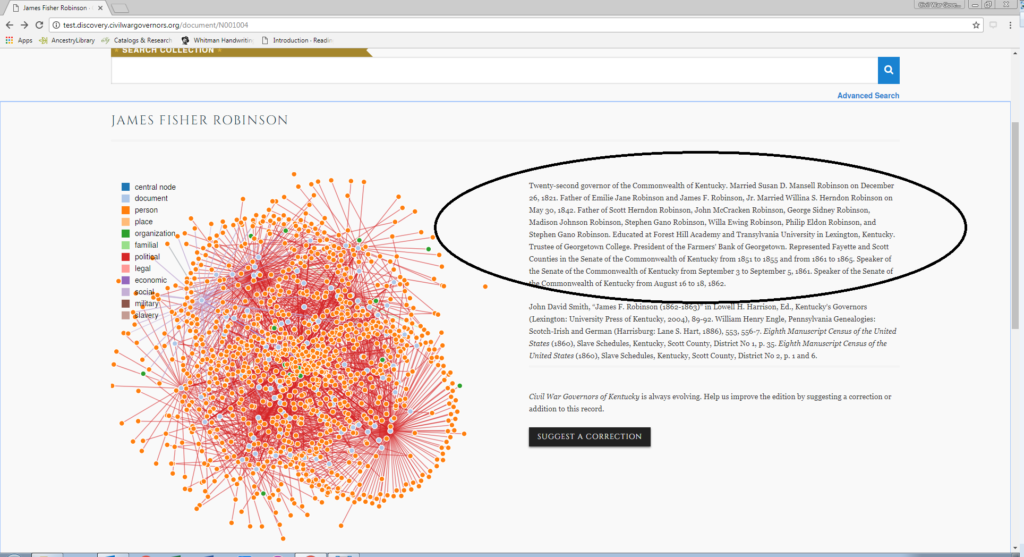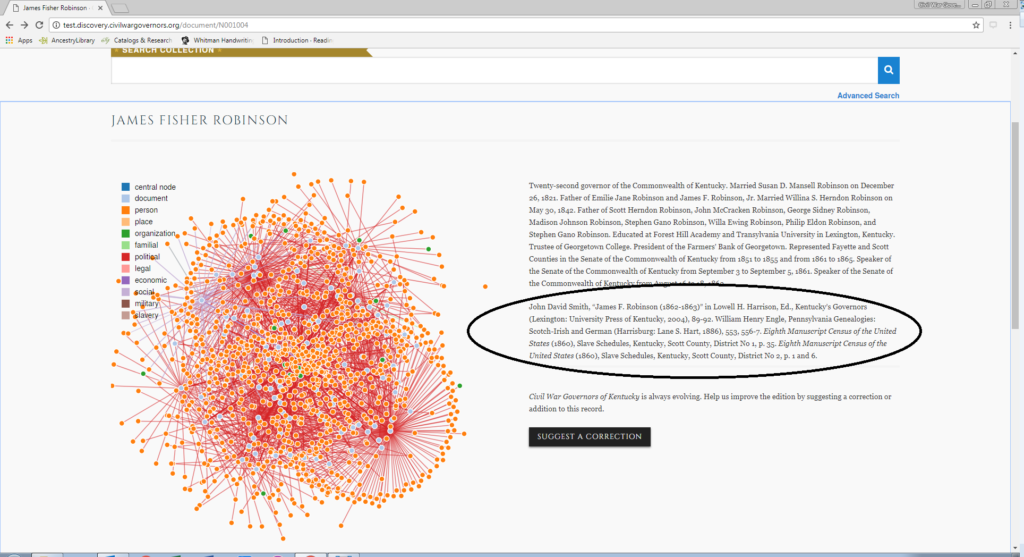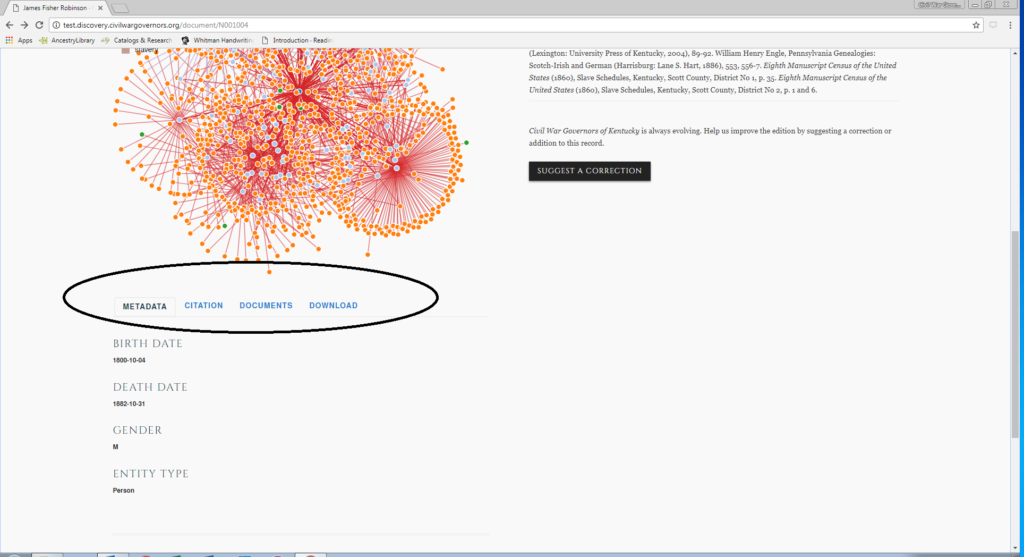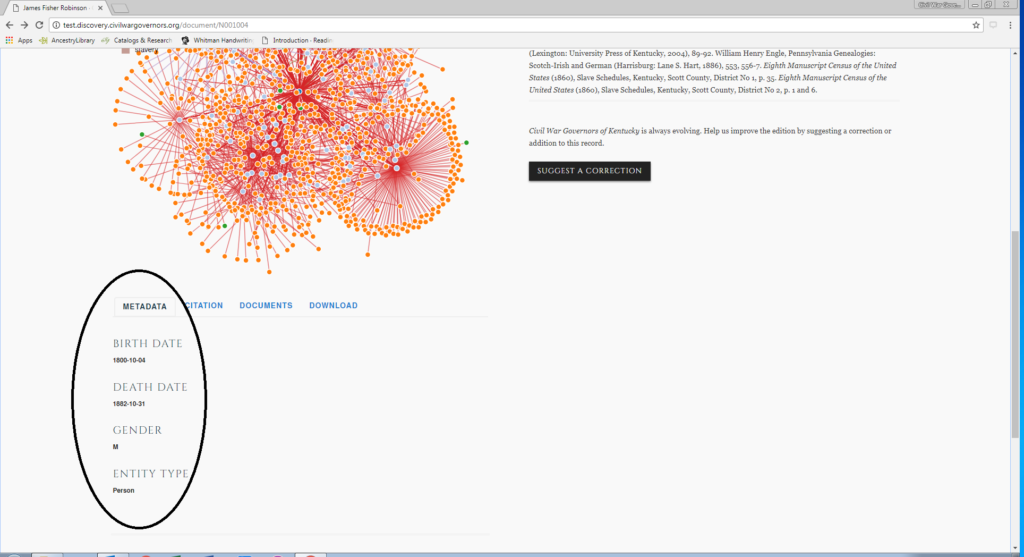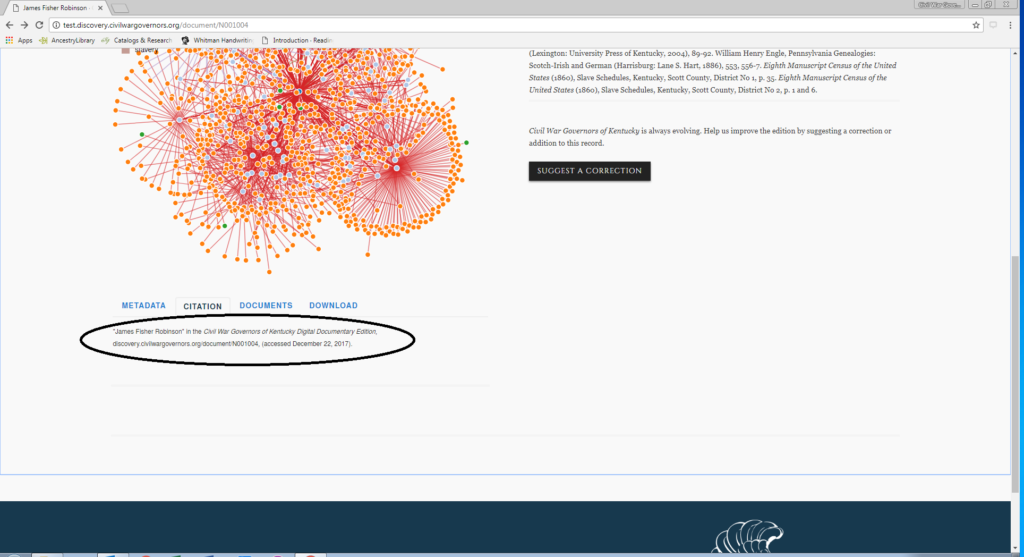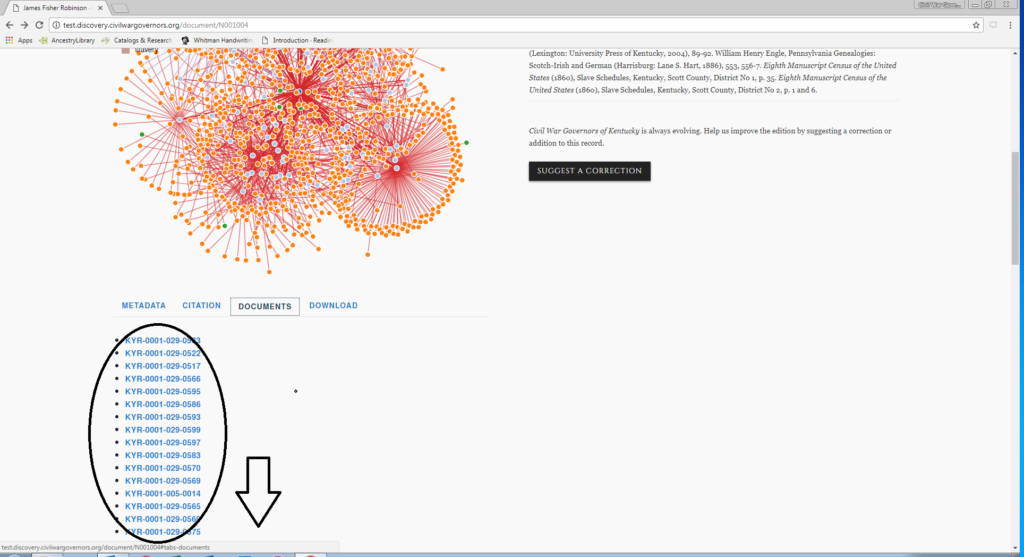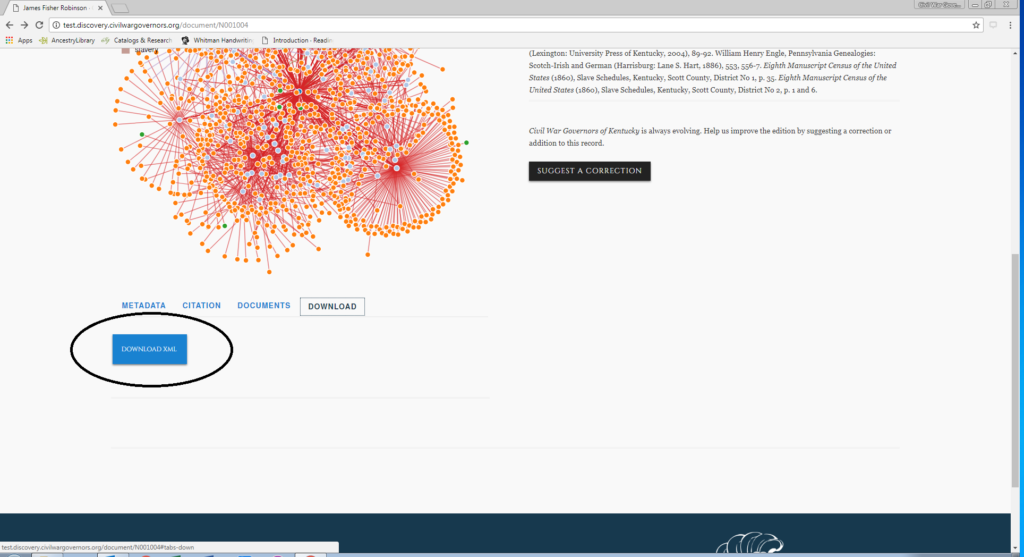Overview: The Kentucky Historical Society (KHS) and its project the Civil War Governors of Kentucky Digital Documentary Edition (CWGK) are proud to announce the opening of another application cycle for their Graduate Research Associates (GRAs). With the generous support of the National Historical Publications and Records Commission (NHPRC), a branch of the National Archives, CWGK is hiring three Graduate Research Associates (GRAs) to conduct editorial work for the project over the period February 1, 2022 to January 31, 2023. GRAs are compensated with a production-based stipend of $4,000 and can work remotely from their home institutions.
CWGK is an annotated, searchable, and freely-accessible online edition of documents associated with the chief executives of the Commonwealth from 1860 to 1865. However, CWGK is about more than the nominal governors; it is about reconstructing the lost lives and voices of tens of thousands of Kentuckians who interacted with the office of the governor during the war years. Collectively, the staff of CWGK identify, research, and link together every person, place, and organization found within its corpus of documents. To see the project’s work to date, visit discovery.civilwargovernors.org.
Each GRA will annotate 120 assigned documents and spend around 250 hours researching and developing biographies over the course of their year with CWGK. The new GRAs continue a successful five-year program that has involved 17 other emerging scholars and digital humanists. In their annotation work, the GRAs will be responsible for researching and writing short entries on all the individuals, places, organizations, and geographical features found in their assigned 120 documents.
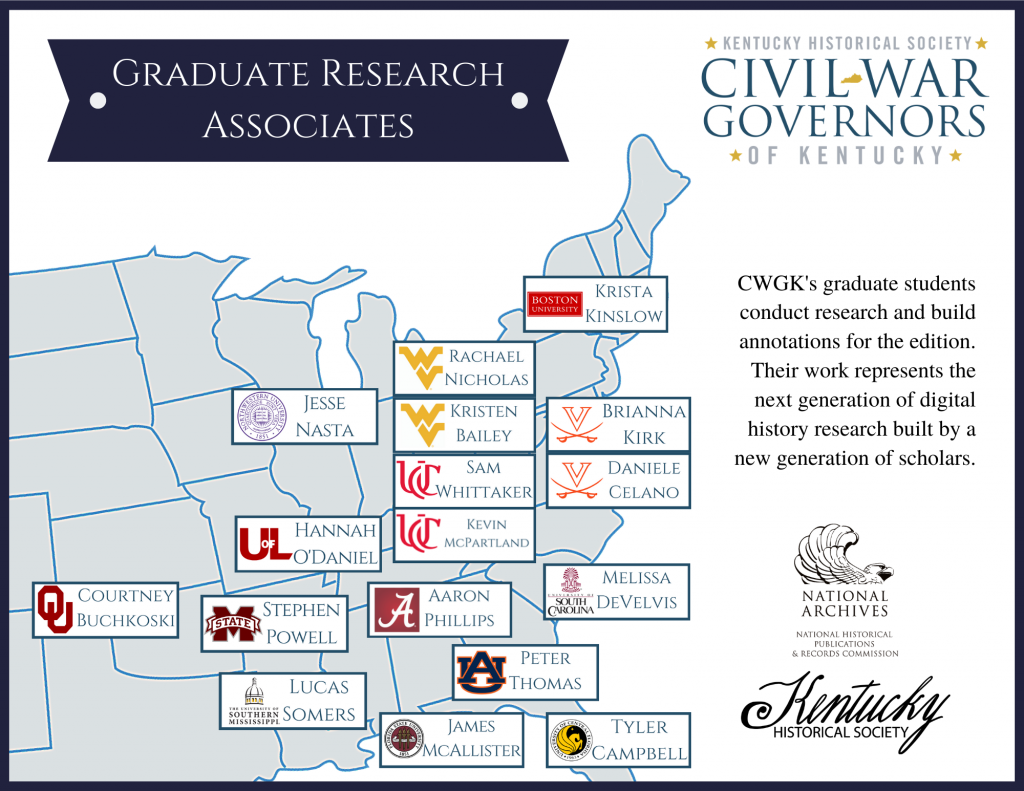
Interaction with the documents and the writing of annotations will take place in a web-based annotation tool developed for CWGK, which can be accessed from any location. CWGK will make use of online research databases to make its work efficient and uniform. Other archival sources may be of value but are not required by the research guidelines. Securing access to the paid databases required by CWGK (Ancestry.com, Fold3.com, and ProQuest Historical Newspapers: Louisville Courier Journal) is the responsibility of the GRA. If regular institutional access to these databases is not available to the GRA through a university or library, it is the responsibility of the GRA to purchase and use a subscription to these databases. KHS will not reimburse the GRA for any travel, copying, or other expenses incurred in CWGK research.
Eligibility: All applicants must be a graduate student who has completed at least one semester of an M.A. program in history, or a related humanities discipline (doctoral students/candidates preferred). Experience with nineteenth-century United States history or documentary editing is also preferred, but not necessary.
Application: To apply for one of these GRA positions, applicants should submit the follow materials.
- A cover letter—that describes the applicant’s professional abilities, relevant research experience, familiarity with digital history, and professional ability
- A curriculum vitae
- Two letters of recommendation, at least one of which can speak to the applicant’s abilities as a researcher
Applicants may also include optional, supplemental materials, including, but not limited to examples of digital history/humanities work, a writing sample, or proof of editorial experience.
Deadline: January 7, 2022
All application materials should be submitted to Dr. Chuck Welsko, Project Director at charles.welsko@ky.gov.
Review: The Kentucky Historical Society will evaluate the applicants based on their research ability, familiarity with the Civil War and Reconstruction eras, as well as relevant experience with digital or public history work, as demonstrated through their applications materials.
CWGK staff anticipate conducting interviews in late to mid-January and hiring new GRAs in the early part of February.
About KHS: KHS has welcomed more than 1 million visitors since its anchor building, the Thomas D. Clark Center for Kentucky History, opened in 1999 in historic downtown Frankfort. Our mission is to educate and engage the public through Kentucky history in order to meet the challenges of the future. KHS is an affiliate of the Smithsonian Institution and is fully accredited by the American Alliance of Museums.

